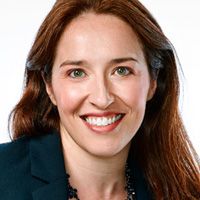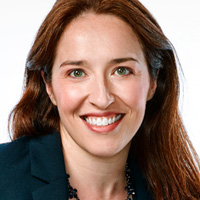Conversations that Women Should Have with Their Financial Advisers
Here are a few key topics all women should consider when reviewing their financial picture.


Profit and prosper with the best of Kiplinger's advice on investing, taxes, retirement, personal finance and much more. Delivered daily. Enter your email in the box and click Sign Me Up.
You are now subscribed
Your newsletter sign-up was successful
Want to add more newsletters?

Delivered daily
Kiplinger Today
Profit and prosper with the best of Kiplinger's advice on investing, taxes, retirement, personal finance and much more delivered daily. Smart money moves start here.

Sent five days a week
Kiplinger A Step Ahead
Get practical help to make better financial decisions in your everyday life, from spending to savings on top deals.

Delivered daily
Kiplinger Closing Bell
Get today's biggest financial and investing headlines delivered to your inbox every day the U.S. stock market is open.

Sent twice a week
Kiplinger Adviser Intel
Financial pros across the country share best practices and fresh tactics to preserve and grow your wealth.

Delivered weekly
Kiplinger Tax Tips
Trim your federal and state tax bills with practical tax-planning and tax-cutting strategies.

Sent twice a week
Kiplinger Retirement Tips
Your twice-a-week guide to planning and enjoying a financially secure and richly rewarding retirement

Sent bimonthly.
Kiplinger Adviser Angle
Insights for advisers, wealth managers and other financial professionals.

Sent twice a week
Kiplinger Investing Weekly
Your twice-a-week roundup of promising stocks, funds, companies and industries you should consider, ones you should avoid, and why.

Sent weekly for six weeks
Kiplinger Invest for Retirement
Your step-by-step six-part series on how to invest for retirement, from devising a successful strategy to exactly which investments to choose.
Many women who are extremely successful at work still find they lack some confidence when it comes to discussing and planning what to do with their wealth. If you're unsure of where to turn, a trusted financial adviser can be a valuable resource to help you make empowered decisions about your money.
Having worked with many women, I've observed a few recurring themes that women should take into consideration when making long-term financial plans. Here are a few different topics that all women should consider discussing with your own adviser.
Making savings last
Statistically, women live longer lives. According to Statista, the average life expectancy for women born in the U.S. in 2020 is 81 years, as compared to just 76 years for males. This means all women in the U.S. should save for a relatively longer retirement.
From just $107.88 $24.99 for Kiplinger Personal Finance
Become a smarter, better informed investor. Subscribe from just $107.88 $24.99, plus get up to 4 Special Issues

Sign up for Kiplinger’s Free Newsletters
Profit and prosper with the best of expert advice on investing, taxes, retirement, personal finance and more - straight to your e-mail.
Profit and prosper with the best of expert advice - straight to your e-mail.
Consider an example of two people who retire at the age of 65. Both want to spend $70,000 each year starting the first day of retirement. They estimate they will earn a 6% return on their retirement savings and they want to each give themselves a 3% annual cost of living adjustment. If a man lives until age 76, he'll need to have saved roughly $670,000 by the time he retires. If a woman lives until age 81, she will need to save an additional $240,000 to cover those additional years.
Of course, this life expectancy figure is still only an average, meaning that there’s a chance you will live longer than this. Studies have shown that individuals who have obtained higher levels of education and wealth have longer life expectancies, so make sure to factor longevity into your long-term financial plan.
Planning for changes in spending
While it might be easiest to think about how much you want to spend in retirement as one lump sum amount each year, how you spend your money tends to change over time as you get older. A flexible retirement plan should look at the various categories of spending and adjust them over time. For example, once your mortgage is paid off, housing costs typically don’t change much unless you downsize. On the other hand, many retirees spend more on travel and entertainment in the early years of retirement and less as they get older, while increasing the amount of gifting they do to family and charity.
In addition to accounting for your general living expenses, it’s also important to discuss potential health care costs with your adviser. An experienced adviser can help you estimate the cost of health care and plan for how to cover expenses that may arise.
You should discuss the transition to Medicare with your adviser, preferably before you are eligible at age 65. Many people falsely assume Medicare is free and will cover everything, but there are premiums to pay, out-of-pocket expenses, and health care costs that simply aren't covered by Medicare, such as dental, vision and long-term care.
As retirement milestones and health considerations will have an impact on your overall spending plan, it’s important to keep an open line of communication with your trusted financial adviser and your loved ones. If you and your partner have a joint wealth plan – or if your financial lives are intermingled – be sure that both parties fully understand each other’s financial goals and are capable of accessing important documents or accounts should the need arise.
The caretaking of you and yours
In the U.S., around two-thirds of all caregivers are women, which has a major impact on their finances. Women are often charged with primary caregiving responsibilities for children, spouses and/or aging parents. They are also more likely than men to adjust their careers or take a break from the professional workplace to care for family — which affects lifetime wages, savings and Social Security benefits.
If you anticipate being a family caregiver to an aging loved one someday, it’s better to start thinking about what that might mean for you sooner rather than later. If your parent has a health emergency, do you know how they want to be cared for? Do you know where to find copies of their insurance cards, health care proxies and durable powers of attorney? No one likes to think about their own mortality let alone their parents’, but taking time to have a conversation with them to plan in advance can save everyone a lot of anxiety should a crisis happen.
Unfortunately, women are often caregivers themselves but frequently overlook planning for their own care later in life. Having a basic set of legal documents in place (such as a will, durable power of attorney, health care proxy and living will) is a good first step, but it’s even better to think through the logistics of needing help in the future. A trusted financial adviser can help you establish a plan, organize your financial affairs and communicate your wishes to your loved ones to help lessen the stress on you and your loved ones in your golden years.
Maximizing tax benefits
Charitable donation deductions have long been favored as a way to lower taxable income, but much has changed with the 2017 Tax Cuts and Job Act (TCJA). The TCJA increased the standard deduction and raised the bar for itemized deductions.
A financial adviser can help you navigate strategies so you can continue donating to your favorite charities while also lowering your taxable income. One popular solution to consider is “bunching” several tax-deductible charitable donations that would normally be made over several years and consolidating them into one tax year. Additionally, a donor-advised fund can allow you to itemize a large lump sum donation in one year but gives you the flexibility to make distributions to charities over time.
Focus on the big picture
Financial planning isn’t just managing stocks and bonds for retirement. It’s a blend of investment strategy, tax and estate planning, personal goals, risk tolerance and so much more. Any financial adviser worth their salt should be able to help you think holistically about your financial picture and ensure each piece is planned for — from establishing an estate plan to making sure you have the appropriate level of insurance coverage.
Like working with a personal trainer or professional coach, partnering with a trusted, knowledgeable adviser can help keep you on track to reach your financial goals. The process takes work, but the end results and peace of mind that a thoughtful financial plan provides make it worthwhile.
Profit and prosper with the best of Kiplinger's advice on investing, taxes, retirement, personal finance and much more. Delivered daily. Enter your email in the box and click Sign Me Up.

Kathleen Kenealy, CFP®, CPWA® is the Director of Financial Planning and a senior wealth adviser for Boston Private, an SVB company. She specializes in working with successful individuals and families to manage, protect and grow their assets. Kenealy provides guidance on investment, retirement, philanthropic, estate and tax-planning strategies.
-
 Nasdaq Leads a Rocky Risk-On Rally: Stock Market Today
Nasdaq Leads a Rocky Risk-On Rally: Stock Market TodayAnother worrying bout of late-session weakness couldn't take down the main equity indexes on Wednesday.
-
 Quiz: Do You Know How to Avoid the "Medigap Trap?"
Quiz: Do You Know How to Avoid the "Medigap Trap?"Quiz Test your basic knowledge of the "Medigap Trap" in our quick quiz.
-
 5 Top Tax-Efficient Mutual Funds for Smarter Investing
5 Top Tax-Efficient Mutual Funds for Smarter InvestingMutual funds are many things, but "tax-friendly" usually isn't one of them. These are the exceptions.
-
 Social Security Break-Even Math Is Helpful, But Don't Let It Dictate When You'll File
Social Security Break-Even Math Is Helpful, But Don't Let It Dictate When You'll FileYour Social Security break-even age tells you how long you'd need to live for delaying to pay off, but shouldn't be the sole basis for deciding when to claim.
-
 I'm an Opportunity Zone Pro: This Is How to Deliver Roth-Like Tax-Free Growth (Without Contribution Limits)
I'm an Opportunity Zone Pro: This Is How to Deliver Roth-Like Tax-Free Growth (Without Contribution Limits)Investors who combine Roth IRAs, the gold standard of tax-free savings, with qualified opportunity funds could enjoy decades of tax-free growth.
-
 One of the Most Powerful Wealth-Building Moves a Woman Can Make: A Midcareer Pivot
One of the Most Powerful Wealth-Building Moves a Woman Can Make: A Midcareer PivotIf it feels like you can't sustain what you're doing for the next 20 years, it's time for an honest look at what's draining you and what energizes you.
-
 I'm a Wealth Adviser Obsessed With Mahjong: Here Are 8 Ways It Can Teach Us How to Manage Our Money
I'm a Wealth Adviser Obsessed With Mahjong: Here Are 8 Ways It Can Teach Us How to Manage Our MoneyThis increasingly popular Chinese game can teach us not only how to help manage our money but also how important it is to connect with other people.
-
 Looking for a Financial Book That Won't Put Your Young Adult to Sleep? This One Makes 'Cents'
Looking for a Financial Book That Won't Put Your Young Adult to Sleep? This One Makes 'Cents'"Wealth Your Way" by Cosmo DeStefano offers a highly accessible guide for young adults and their parents on building wealth through simple, consistent habits.
-
 Global Uncertainty Has Investors Running Scared: This Is How Advisers Can Reassure Them
Global Uncertainty Has Investors Running Scared: This Is How Advisers Can Reassure ThemHow can advisers reassure clients nervous about their plans in an increasingly complex and rapidly changing world? This conversational framework provides the key.
-
 I'm a Real Estate Investing Pro: This Is How to Use 1031 Exchanges to Scale Up Your Real Estate Empire
I'm a Real Estate Investing Pro: This Is How to Use 1031 Exchanges to Scale Up Your Real Estate EmpireSmall rental properties can be excellent investments, but you can use 1031 exchanges to transition to commercial real estate for bigger wealth-building.
-
 Should You Jump on the Roth Conversion Bandwagon? A Financial Adviser Weighs In
Should You Jump on the Roth Conversion Bandwagon? A Financial Adviser Weighs InRoth conversions are all the rage, but what works well for one household can cause financial strain for another. This is what you should consider before moving ahead.